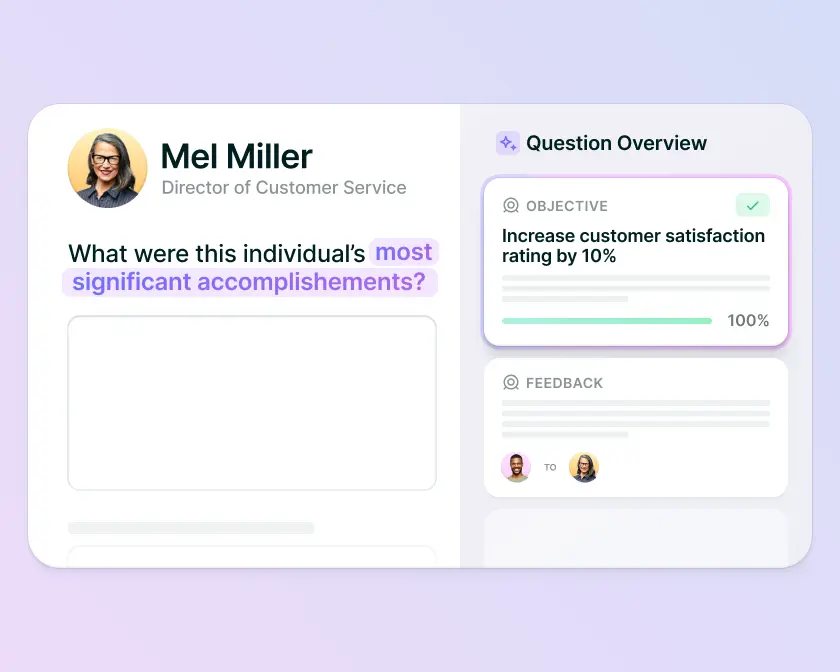Lattice’s 2026 State of People Strategy Report paints a positive picture of European HR teams: 85% are engaged in their work. More than half are anticipating bigger budgets and growing teams next year.
Technology is playing an increasingly impactful role in how HR teams work, and 3 in 4 European HR teams report they regularly use or have experimented with agentic AI.
That said, our survey of over 1,000 HR leaders found that most European teams are also having to work hard to defend their people programmes.
And, while people teams in Europe and the US face different challenges, some issues — like shifting views on diversity, equity, inclusion, and belonging — appear to be taking hold in both regions.
In this article, we’ll dig into our survey findings and explore:
- Why European teams are more engaged than their US counterparts
- How empathy is still central to people processes
- How teams can best harness evolving HR technology to enhance their value
The Heart of HR: How Empathy Fuels Engagement and Performance
At first glance, human resources teams in Europe seem to be doing well: 62% say they are meeting or exceeding their goals.
When asked what motivated them in their work, the main drivers European HR practitioners mentioned were:
- Being seen as a trusted advisor
- Helping individuals grow and develop
- Having an influence across the organisation from the C-suite to the frontline
Even as HR tech and artificial intelligence become embedded in how those teams work, it is encouraging to find these very human values still rooted in people teams. They demonstrate HR’s impact and foster a sense of self-worth.
“Empathy is the heart of HR,” explained Stéphanie Fraise, chief human resources officer at OpenClassrooms. However, she cautioned, empathy should be paired with self-awareness. HR professionals also need to recognise their own limits and mind their wellbeing without becoming overwhelmed themselves.
“Emotional boundaries are what make sustainable and long-term impact possible.”
Engagement and L&D
For European HR leaders, employee engagement and learning and development (L&D) are tied as top priorities for 2026, each at 36%. That’s no surprise: The two go hand in hand.
Meaningful L&D shows employees that the company values their skills and contributions. In turn, engaged employees are more motivated to keep learning and growing in their roles.
Performance Management
Performance management is the next highest priority for European HR teams, at 33%. And they appear to be getting better at it: The share of HR managers who struggle to tell the difference between “excellent” and “good” performance has fallen from 64% last year to 35% this year.
Similarly, managers in European companies are making more time for one-to-ones and weekly check-ins. Our survey found that European HR teams are more than twice as likely as US teams to run quarterly performance reviews (51% vs. 25%).
Defending Spending on People Programmes
European businesses appear to place greater value on their HR teams:
- 64% of European HR leaders said they expect budget increases in the next 6 to 12 months, compared with just 35% in the US.
- 52% anticipate team growth in the next 6 to 12 months.
- 41% said their companies are increasing employee bonuses — more than double the 20% reported by US teams.
But it seems they will have to make a strong case for those increases.
Over 40% of European HR teams are coming under increasing pressure to defend their people programmes — significantly more than their US counterparts.
More than a quarter (27%) say that achieving credibility and influence within their organisation is a major challenge.
This suggests that, while companies see the value in HR teams, any spending needs to be clearly justified in an uncertain global economic climate.
Diversity, Equity, Inclusion, and Belonging (DEIB) Under Pressure
Given the curtailment of diversity programmes across the United States since the beginning of 2025, it’s unsurprising that just 11% of HR teams in the US are prioritising DEIB initiatives. In Europe as a whole, the rate is more than double at 24%, with France (28%) and the United Kingdom and Ireland (26%) leading the way.
Still, there are signs that DEIB programmes are also coming under pressure beyond the US. One in 4 European HR teams (25%) are cutting back on dedicated DEIB roles — including 42% of German teams. Three in 10 European HR respondents say they’re torn between employees’ and leadership’s perceptions of DEIB.
Alan Cairns, member of Lattice's CPO council, said he’s felt the impact. “Many of my US colleagues tell me they are dialing back DEIB programmes and unwinding some of the things they held dear.”
How Technology and AI Are Impacting HR
European HR teams are increasingly looking to technology to support their work, with 54% actively experimenting with new tech. Almost half (48%) are incorporating specialised AI-powered tools such as performance and sentiment analysis.
Agentic AI: Optimism and Caution
Across Europe, HR professionals are leaning into AI with enthusiasm. A significant majority (81%) of those we surveyed feel excited about the increasing use of AI in HR.
That excitement is translating into action. Three-quarters (75%) of European HR teams are regularly using, or have experimented with, agentic AI (autonomous AI-driven agents) in their workflows, compared to just 45% of US teams.
When we asked European HR teams how they felt about agentic AI replacing some HR activities, the tone remained largely positive. The most common responses were “hopeful” (39%) and “optimistic but cautious” (31%).
Yet that optimism comes with pressure: Nearly half (45%) said they feel an expectation to deliver efficiency gains through AI.
Interestingly, skepticism remains rare. Few respondents described themselves as “worried” or “resigned,” and only 18% said they have significant ethical concerns about AI — noticeably lower than the 25% we saw among US HR professionals.
Consolidating the HR Tech Stack
With performance and engagement high on the priority list of European HR departments, it’s not surprising that they are top of the tech stack too. Digital performance management tools are used by 45% of European HR teams, while 44% have a software solution for employee engagement and feedback.
In 2026, more HR teams are moving to centralise their processes into a single system. Our survey shows 62% of European HR teams are under pressure to consolidate their tech stack, including 86% in Germany. Yet the reality varies by region: Nearly half of European teams (46%) already use just 1-3 HR tools, while in the US, 48% are still juggling six or more.
“HR technology should only be purchased when it clearly addresses a meaningful, well-defined business problem,” said Rana Robillard, CPO at Tekion. “Systems that are underused — or not fully aligned with real business needs — will naturally become targets for budget cuts. But when a tool is well-utilized and visibly contributing to outcomes, it’s far easier to defend its place in the tech stack.”
{{rich-highlight-2}}
How Europe’s HR Leaders See People Strategy for 2026
As we look toward 2026, we asked European HR leaders for their thoughts on the results of our State of People Strategy Report.
What makes Europe different?
Our survey found that HR teams in Europe tend to be more engaged than their American counterparts: 85% of HR teams in Europe say they’re engaged, compared to 72% in the US.
Joaquin Migliore, Director of People Experience at Superside, said he believes this is not just true of HR teams, but of engagement across the board. To Migliore, it’s a result of the European way of life and work.
“European work culture tends to value personal wellbeing and work-life balance more than American work cultures on average, though of course individual country or company cultures play a part” he said. “People in Europe tend to see their career as a critical part of their life, but just that, not their whole life, as sometimes tends to happen in the more ‘grindy’ American work culture.”
Fraise agreed and added: “There’s also a stronger tradition of social dialogue that reinforces the strategic role of people teams.”
Performance and engagement are better together.
We’ve seen that performance and engagement are both highly valued by European HR leaders. But the leaders we spoke to stressed that it’s not a trade-off.
“Highly-engaged teams deliver higher performance,” noted Cairns. “Concentrating on one and neglecting the other can lead to burnout or lower performance.”
HR teams should recognise and seek to maintain this symbiotic relationship between performance and engagement. Migliore explained that focusing on performance management and engagement together helps the company and its people achieve their goals.
“Making sure performance and productivity are in a healthy space enables the company to thrive, and thus shifts the narrative from ‘What can we do to get more out of our people, we aren’t hitting our company goals’ to ‘What can we do to keep this momentum going and retain our amazing folks?’
"Both are critical, of course. Without focusing on engagement, you’ll lose top performers and you’ll find it hard to achieve your company goals, but many HR teams tend to overlook this baseline, which doesn’t build enough momentum for CEOs to want to sponsor engagement-based initiatives,” he said.
AI and technology can help drive both performance and engagement.
HR tech and AI tools improve the productivity of HR teams by automating busywork like candidate screening and onboarding. Intelligent workflows and data-driven planning make for more efficient and motivated HR teams.
Migliore said AI tools offer great opportunities to enhance performance management — for both managers and employees.
“I particularly like the use case where AI helps compare a manager’s own review with the 360° their direct report might have received to spot inconsistencies, areas that reinforce each other, et cetera. It’s also extremely helpful in condensing feedback into actionable growth areas, which makes the performance review much more useful and forward-looking.”
HR teams are under fire.
Worryingly, 31% of European HR practitioners have thought about quitting in the past 12 months, largely due to the emotional toll of the job and difficulty maintaining work-life balance. Worse, nearly half (48%) of US HR staff have considered leaving the field.
“HR teams carry the emotional and operational weight of the business, yet too often receive little recognition or support,” said Robillard. “People are the most valuable asset of any company, and the HR team is what keeps that engine running. Losing them doesn’t just set HR back. It slows the entire business.”
With many traditional HR tasks, like writing, posting, and screening applications, and running onboarding programmes now falling to AI, HR teams need to show the value they continue to add.
“If we lose our people teams, we lose the culture, cohesion, and impact that hold companies together, especially in our current times of change,” said Fraise. “What gives me hope is the growing recognition that HR is not support, it’s strategy.”
European HR leaders also stress the strategic importance of DEIB for better business outcomes.
“There is a heartfelt belief that diverse teams make better decisions, create more valuable businesses, and build better workplace experiences,” said Cairns. “Getting a group of people together who have different backgrounds, lived experiences, and cultures means you are more likely to look at product launches, problem-solving, and difficult decisions through a wider and deeper lens.”
{{rich-highlight-1}}
Balancing People, Process, and AI in 2026
Looking ahead to 2026, our survey shows engagement, performance, and learning will remain the main focus of European people teams. With the vast majority of HR teams engaged in their work, and budgets and bonuses increasing, the outlook seems positive.
At the same time, with HR tech evolving rapidly and taking care of the most repetitive and time-demanding tasks, HR teams are under pressure to assert their worth and defend that spending.

The HR leaders we spoke to are keen to stress that AI can’t replace what’s most valuable about HR teams — the empathy and social dialogue that makes human resources human.
The future of HR is not a contest between tech and teams, however: It’s collaboration. Consolidating your tech stack for efficiency and using software and AI to enhance how your teams operate will drive greater performance and show why your HR teams are invaluable.
To find out how Lattice’s talent suite and AI Agent can set your HR and leadership teams up for a successful 2026, take a self-guided tour.
.png)
Want a leg up on 2026?
Our 2026 State of People Strategy Report has the scoop: data from 1,000+ people leaders on their priorities, challenges, and plans for 2026.








